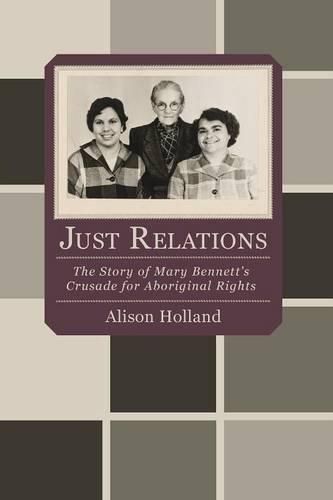Readings Newsletter
Become a Readings Member to make your shopping experience even easier.
Sign in or sign up for free!
You’re not far away from qualifying for FREE standard shipping within Australia
You’ve qualified for FREE standard shipping within Australia
The cart is loading…






This book charts the life and work of one of Australia’s leading twentieth century human rights advocates. It recovers the efforts of Mary Bennett (1881-1961) to found a ‘just relationship’ between Aborigines and non-Aborigines in Australia from the late 1920s, when the possibility of Aboriginal human rights was first mooted on the international stage, to the 1960s, when an attempt was made to have the Aboriginal question raised before the United Nations.
By placing Bennett’s biography in the context of her humanitarianism-her crusade- Alison Holland reveals the ethics of care, as well as the tensions, contradictions and investments at the heart of humanitarian intervention. Along the way, she shows the forces and ideas which shaped Bennett’s advocacy and the wider context within which her story and her efforts took shape. In demonstrating the close connection between humanitarianism as a political project and the rise of human rights, Holland tells an important chapter in the little known history of human rights in Australia.
$9.00 standard shipping within Australia
FREE standard shipping within Australia for orders over $100.00
Express & International shipping calculated at checkout
This book charts the life and work of one of Australia’s leading twentieth century human rights advocates. It recovers the efforts of Mary Bennett (1881-1961) to found a ‘just relationship’ between Aborigines and non-Aborigines in Australia from the late 1920s, when the possibility of Aboriginal human rights was first mooted on the international stage, to the 1960s, when an attempt was made to have the Aboriginal question raised before the United Nations.
By placing Bennett’s biography in the context of her humanitarianism-her crusade- Alison Holland reveals the ethics of care, as well as the tensions, contradictions and investments at the heart of humanitarian intervention. Along the way, she shows the forces and ideas which shaped Bennett’s advocacy and the wider context within which her story and her efforts took shape. In demonstrating the close connection between humanitarianism as a political project and the rise of human rights, Holland tells an important chapter in the little known history of human rights in Australia.